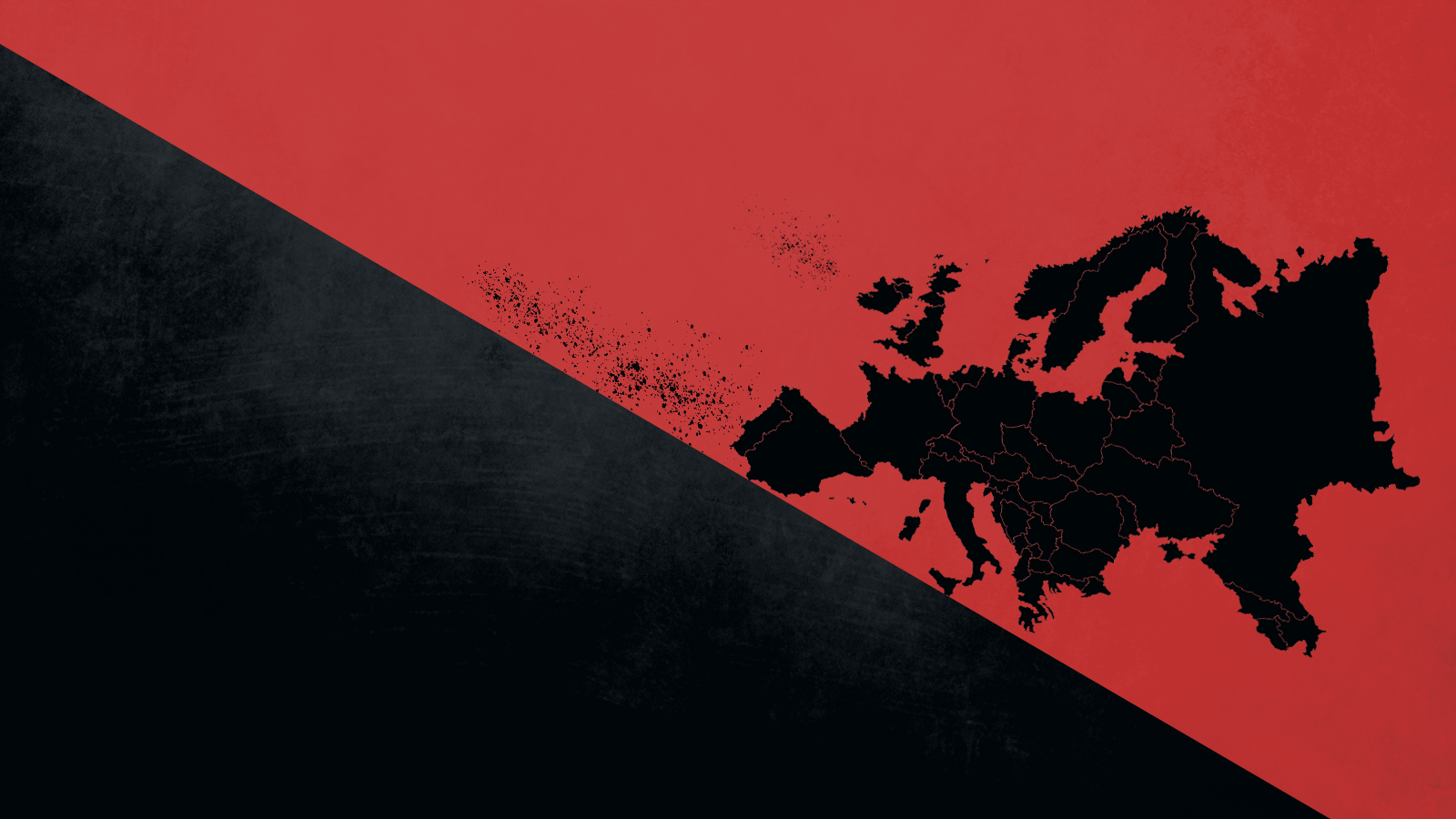
For a certain kind of American liberal, it's almost a reflexive gesture to wish the United States were more like Europe. There, health care is provided on a more egalitarian basis and a university education is much cheaper, if not free; sexual mores are more relaxed and gun ownership is rare; religion is vestigial and militant nationalism is strictly taboo. Widespread European distress over the presidencies of George W. Bush and Donald Trump only confirmed what American liberals knew: that the Old Country was also the dreamland of their imagined liberal American future.
I wonder how it will feel when Europe becomes distinctly more right-wing than the United States.
It's not an inconceivable prospect. The United Kingdom has a Tory government right now, and based on current polling their position looks increasingly secure. France's centrist president Emmanuel Macron would likely be re-elected if the election were held today, but Marine Le Pen's right-wing National Rally party polls considerably higher today in a one-on-one contest with Macron than it did in 2017. Italy's fragile coalition could be followed by a right-wing coalition of Matteo Salvini's Lega and the neofascist-derived Fratelli D'Italia.
Even in Germany, where the Christian Democrat Angela Merkel's 16-year rule is coming to a close, the next government may once again be a coalition led by the CDU/CSU, if not with the center-left SDP, then in a "Jamaica coalition" with a reinvigorated center-right FDP joining the Greens by their side.
Of course polls can and do change, and one election does not imply a radical cultural shift. But the overall political climate in Europe has been trending rightward for some time. After the financial crisis, and the austerity that followed, the traditional left-wing parties began to collapse, and more nationalist and extreme-right alternatives to the mainstream — the AfD in Germany, National Rally in France, UKIP in England — began to arise. The surge in immigration that followed Syria's and Libya's collapse into civil war were further sources of fuel. These parties and movements — critical of the European Union, strongly opposed to immigration, frequently more friendly to Russia — were initially and in many cases still are opposed by all the mainstream parties, but that opposition did little to stem their growth. Eventually, in countries like Hungary and Poland, they began to win elections and assume the powers of government.
In Europe today, the most viable traditional parties are often mainstream right-wing parties that have sought to coopt the nationalist right's issues — most notably Boris Johnson's Tory Party, which eclipsed UKIP by adopting Brexit for itself — or parties self-consciously constituted around the technocratic center so as to unite the mainstream against the far right. True left-wing parties like Jean-Luc Mélenchon's in France or Jeremy Corbyn's Labour have largely fizzled. Meanwhile, the far right continues to produce new phenomena, most recently France's Eric Zemmour, who has outflanked Le Pen on the right by being even more nationalist than she is.
If the result of all this ferment is a European political realignment that contains the far right by reviving a more inward-focused traditional conservatism, that would be good for Europe and, ultimately, for European relations with America. A Europe that was more oriented around national solidarity than global humanitarianism, open immigration, or free markets is a Europe America could readily live, work, and trade with. If by that means the continent achieved greater political stability and democratic accountability, most observers would consider it far preferable to either a lurch to the far right or a descent into civil strife.
But it might be startling for the American left to hear even centrist European politicians like Emmanuel Macron blame them for undermining national solidarity with their "woke" leftism. They might have to get used to it, though. Nothing is more useful for promoting national unity than a foreign threat. And while America's foreign policy establishment would likely prefer that China be that threat, it makes far more sense for a Europe turning inward to decry pernicious American influence on their social fabric than China's threats to Taiwan or its oppression of the Uyghur people.
The question then would be whether America's left will take a lesson from the demise of their European cousins, and rethink their own approach to politics before they face a similar eclipse, and downgrade cultural questions in favor of bread and butter issues. Or, perhaps, whether Europe's turn to the right will inspire America's left to see unique promise once more in our own country's distance from nationalism of the Old World, and redefine their own vision of a culturally egalitarian future not as a necessary redemption of our nation's sinful history, but as a hoped-for fulfillment of distinctively American promise.
No comments:
Post a Comment